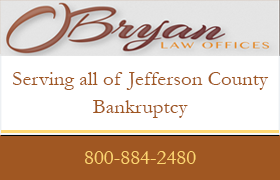Shelbyville Bankruptcy & Debt Lawyer, Kentucky
-
Sponsored Law Firm
-
 x
x

Click For More Info:
-
Obryan Law Offices
9311 Preston Hwy Louisville, KY 40229» view mapBankruptcy Lawyers That Fight For You
Obryan Law Offices has helped thousands of families restore peace and order to their lives. Call us today!
800-884-2480

 Julie Obryan Jefferson, KY
Julie Obryan Jefferson, KY About UsObryan Law Offices
About UsObryan Law Offices FAQFrequently Asked Questions
FAQFrequently Asked Questions
